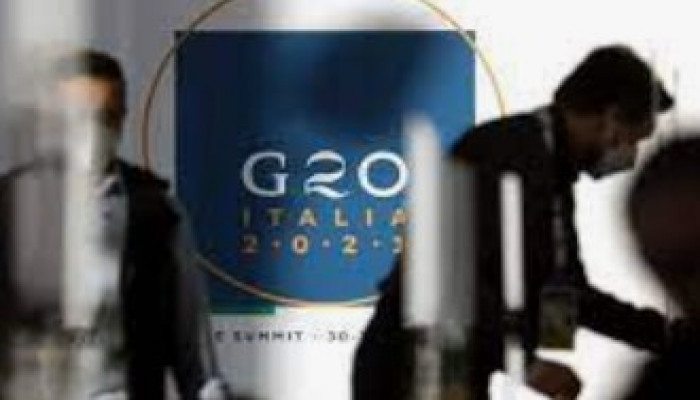UN Climate Summit begins on a cold note after G-20 dodges hard questions
- In Reports
- 04:18 PM, Nov 01, 2021
- Myind Staff
Climate negotiators were counting on powerful world leaders to give them a boost before they begin fraught discussions over what should be done to slow the rise in global temperatures during the COP26 meeting.
Generally, they got what they needed; any consensus was better than an acrimonious breakdown. The politicians pledged to stop financing overseas coal plants, fix methane leaks, and take stronger measures to curb global warming this decade. They did not, however, reach agreement on a precise date for phasing out the dirtiest fossil fuels and achieving net-zero emissions.
In Glasgow, there were disappointed reactions. Unlike the G-20, where the world's biggest polluters accounted for 80% of global emissions, the COP talks bring together almost 200 countries, including some which contribute far less to climate change but suffer greatly from its consequences.
"This is a welcome start, but it won't stop the climate from heating more than 1.5 degrees," said Mohammed Nasheed, former president of Maldives who serves as the ambassador of climate vulnerable countries, referring to the Paris Agreement's stretch goal of keeping temperatures from rising more than 1.5° Celsius from pre-industrial levels. "This isn't nearly enough," he said.
Watered down diplomacy will make achieving consensus among hundreds of diplomats harder. Several countries agree on the broad framework for the talks, famously outlined in Paris in 2015, in which each nation pledges to reduce emissions as much as possible, while rich nations provide financial support to help developing economies raise their ambitions.
In reality, things are much more complicated. At the G-20 summit in Rome, the leaders agreed to channel post-Covid stimulus money into climate action and mobilize more funds for developing countries through development banks. The delegations from India and Indonesia told sources that would be needed for them to phase out coal. But the G-20 statement dodged the real issue: there weren't any concrete details on sums that may be spent or the date by which they could be secured.
G-20 countries agreed that stemming releases of the super warming greenhouse gas is one of the cheapest, quickest and most feasible ways to cool the planet. But they fell short of agreeing to the Global Methane Pledge that aims to reduce emissions by 30% by 2030 relative to 2020 levels.
"This weak statement from the G-20 is what happens when developing countries who are bearing the full force of the climate crisis are shut out of the room," Mohamed Adow, director of Power Shift Africa, a non-governmental organization. "At least the UN process is open to all countries and allows the voice of the climate vulnerable to be heard. The exclusive club of the G-20 is clearly not fit for purpose."
Although they narrowed the deadline for reaching net-zero emissions, G-20 leaders reaffirmed the Paris Agreement's temperature goals. Earlier drafts of the communique had proposed a 2050 target, although countries for instance placed a 2060 deadline for this goal. The G-20 on the weekend agreed to reach carbon neutrality "by mid-century."
COP26 President Alok Sharma said the G20 talks had not been easy, and that "one meeting - G20 or COP26 - can't address everything." He said it showed the need for accelerating climate action in the next decade. Progress on the details and establishing specific targets will be needed to hold countries accountable.
"In many ways, success at the Glasgow climate talks hinges on rebuilding trust," said Helen Mountford, vice president of climate and economics at the World Resources Institute, "trust that the promised financial support will be delivered to developing countries, trust that major emitters will make bold emission cuts and trust that new corporate commitments are transformative rather than PR stunts."
Image source: Bloomberg







Comments